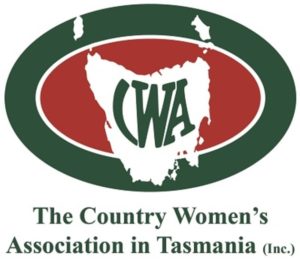Winner 2021: Heidi Berry
Name: Heidi Berry
Grade: Year 12
Age: 17 Years
School: Rosny College
Hometown and State: premaydena & midway point (tipina), both on paredareme country, Tasmania
COURAGE TO CHALLENGE: what is the role of rural women in driving change in their communities?
premaydena is an hour and a half from nipaluna (Hobart) and is home to 99 people. It is a rural district with a general store that acts as a service hub for a region, not so much a town. It lies on a road snaking its way around the breathtaking Tasman Peninsula. Located on a crossroad that runs on a tangent to a long-ago abandoned convict coal mine surrounded by pristine white beaches and national parks. Tourists making a beeline for Port Arthur and its iconic heritage site rush right by. This place is typical of many rural and regional communities in Tasmania; lacking public transport services with options to access major population centres expensive and infrequent.
When people think of Tasmania, it is often in the context of a small island state. Distances on a map appear insignificant, yet students must ride their bike or be driven to the nearest bus stop 20km away, then catch the bus 70km to school in Sorell. Families have to decide who will help drive the kids, and this burden falls heavily on mothers. Despite having a University in Tasmania, for most rural kids, particularly young rural women, the inability to attend campus (or to have quality internet connections) makes missing out on tertiary education a fait accompli.
However, lutruwita (Tasmania) boasts a lush natural environment, and women have led and continue to lead a transformation of production; making a wide range of goods from clothing to gourmet delicacies. All through lutruwita, it is common to see fantastic produce on sale at farm gate markets, cellar doors, and community events that are run entirely by rural women.
Recently, a seemingly simple decision by Australia Post to stop the shipping of perishable foods had enormous, potentially devastating consequences for these micro-businesses that women have worked so hard to establish. Women spoke out strongly to successfully lobby for this rule change to be scrapped.
Tasmanian rural women demonstrate exceptional levels of cooperation and encouragement. Small businesses are supported by their communities, with people choosing to shop within their district and reward sustainable, female led businesses.
There is a stark choice between clean, green opportunities; between sustainable business practice versus decimating the environment. palawa and pakana culture is matriarchal, and we are now seeing more strong rural women producing indigenous foods such as Tasmanian yams, pepperberry, and abalone. The market that women are increasingly tapping into is high end, high quality and sustainable. Pre-colonization food staples are now becoming gourmet delicacies.
More widely, rural Tasmanian women run family businesses, from farms to grocery stores; selling cheese, vodka, organic wines and many more products. With better transport, education, and support, there is even more opportunity for lutruwita’s women to continue their remarkable transformation of this small state’s economy, on their terms. We have to challenge the status quo. The many strong female Tasmanian role models in my surroundings inspire me to continue the process of transformation.
note: palawa kani words like nipaluna, lutruwita, premaydena are written in lowercase, due to a discontinuation of capitalisation in the revival of the language
This Power Trip is kindly being sponsored by The CWA in Tasmania

